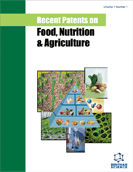Abstract
Studies in humans and animal models have demonstrated that fish oil, a natural source of n-3 long chain polyunsaturated fatty acids (LC-PUFA), has clinical significance in the prevention and reversal of insulin resistance. Many studies support that higher proportion of serum and cell-membrane n-3 PUFA can improve insulin sensitivity and prevent type 2 diabetes (T2D). However, epidemiological and dietary intervention studies in healthy, obese and diabetic individuals have produced conflicting results on the metabolic effects of dietary n-3 PUFA. The present chapter discusses updated evidence on this matter, analyzes the possible reasons for these inconsistencies, and the possible mechanisms by which n-3 LC-PUFA may prevent or revert insulin resistance. The use of these fatty acids should be part of integral strategies, considering age, gender, metabolic or health status and other variables. This strategy should include changes in lifestyle, adhering to a healthy diet and regular physical activity. Although this is encouraging in the perspective of insulin resistance prevention, further clinical and basic studies must be designed to confirm and complete our knowledge in this field.



















